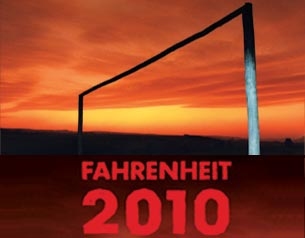Fahrenheit 2010
What does the World Cup really mean for South Africans?
 This uncompromising investigation asks what the World Cup really means for South Africans. Who actually stands to benefit from the millions of dollars invested? And what will South Africa be left with after the trophy is lifted and the applause dies down?
This uncompromising investigation asks what the World Cup really means for South Africans. Who actually stands to benefit from the millions of dollars invested? And what will South Africa be left with after the trophy is lifted and the applause dies down?
"People have to understand that the commitment of resources to 2010 will be half of the commitment of resources to the Olympics", says Dennis Brutus. And those in power will let nothing stand in their way. "We know we're going to be evicted but we don't know where to", says a member of the Mbombela municipality where a new stadium is being constructed. A school was demolished for construction offices and the pupils moved into boiling hot caravans. "I've got a criminal record because of this stadium. This stadium hurts me a lot", says a boy who protested about his new 'classroom'. "Kids dream about becoming footballers, they don't dream about going to hospital", says the CEO of the local organising committee. Yet for many South African children, the World Cup dream has already begun to fade. The glory of national pride can't hide the fact that South Africa is still suffering from more health, educational and poverty crises than ever before. And when the applause dies down, South Africans are going to have big questions about how their resources have helped them. "We've been seduced", says Martin Welz, "this was a big mistake." LEARN MORE.
WATCH MORE.
JOIN THE DISCUSSION.
 Official Selection, Durban Int'l Film Festival, 2010
"... something that needs to be said" - FHM MAGAZINE
Official Selection, Durban Int'l Film Festival, 2010
"... something that needs to be said" - FHM MAGAZINE
"... shows how ordinary South Africans have been shoved aside" - JOHN PILGER

